- Home
- Sidney Sheldon
Sidney Sheldon's Angel of the Dark Page 25
Sidney Sheldon's Angel of the Dark Read online
Page 25
He was delighted.
Death threats were what enabled Judge Federico Muñoz to demand a permanent security detail to escort him to and from work. Arriving every day at the imposing white-pillared courthouse at 9355 Burton Way, surrounded by a phalanx of armed guards, made Judge Muñoz feel inordinately important, as did the ongoing media interest in his life. Publicly, of course, he denounced this interest as prurient and mean-spirited, taking particular umbrage at the L.A. Times’s dubbing of him as “Judge Dread.” Privately, however, he loved every minute of it. Judge Federico Muñoz was already famous in Los Angeles. Now, thanks to the Azrael trial, he was becoming famous around the world.
The trial that had been going on now for two weeks—it had taken the prosecution that long to present their case, so huge was the mountain of evidence at their disposal—could not have been more sensational. Four wealthy men brutally murdered in identically staged and plotted circumstances around the globe. The accused, a married couple in their forties, both blessed with movie-star good looks, caught in the act of attempting to murder a fifth. All the elderly victims had been lured into marriage by the female defendant, known to the media as “the Angel of Death.” And yet this woman had herself submitted to violent, sexually sadistic assaults during each murder, administered by the male defendant. Willingly, if the prosecution was to be believed.
Neither party denied the murders, but each claimed coercion, identifying the other as the ringleader. Throw in the soap-opera-perfect twist of a “Robin Hood” motive—all the victims’ millions had been donated to children’s charities—and the tabloids could not have asked for more.
But they got more. They got a female defendant who had successfully assumed a new identity each time she tempted a fresh victim into her marriage bed, and had apparently undergone multiple surgeries to alter her appearance over the course of the past decade or so, but who remained drop-dead gorgeous. Sitting passively through the prosecution’s evidence, only occasionally tearing up when photographs of her husbands’ tortured bodies or her own injuries were shown to the jury, the woman seated at one end of the table in courtroom 306 looked as pristine and unsullied as a newborn baby, and as radiant as any angel. The press couldn’t get enough of her.
On the opposite side of the dock sat her codefendant, Frances Mancini. The pair had met when both were orphaned at a New York City children’s home during their teens. Mancini lacked his wife’s radiance, the aura of serenity and goodness that seemed to emanate from her person like light, despite the terrible crimes she’d confessed to committing. Nonetheless he was a compellingly attractive man, with his dark hair, strong jaw and regal, smolderingly arrogant features. Mancini had been shot while resisting arrest in India, and still had difficulty standing up and sitting down, wincing with discomfort each time he moved. When he was at rest, however, Mancini’s thin lips were curled into a permanent knowing smile, as if the whole spectacle of the U.S. justice system had been contrived solely for his amusement. Neither he nor his wife had fought their extradition to the United States despite the fact that in France or England, where they could equally well have been tried, there was no death penalty. Here in California, both defendants were on trial for their lives, in front of a hostile jury and the toughest judge in the L.A. County Superior Court system. Yet Frankie Mancini seemed to view today’s proceedings as little more than a piece of theater, a melodrama if not a boulevard farce, to which the fates had generously decided to allocate him a front-row seat.
This might have had something to do with the lawyer for the prosecution, William Boyce. A tall, angularly built man in his early fifties with close-cropped gray hair and a fondness for cheap charcoal-gray suits, Boyce, who was known for his even, measured delivery, was the antithesis of the hotshot attorney one expected to find in such a high-profile case. He was the proverbial “safe pair of hands,” competent, professional and painfully ordinary to such a degree that it was often said that the only remarkable thing about William Boyce was how very unremarkable he was. Why the state had chosen Boyce to prosecute such a case was almost as much of a mystery as the homicides themselves. Perhaps the powers that be had decided, in the face of such overwhelming evidence, that a monkey could have succeeded in condemning both the Azrael killers to death row…and William Boyce was the closest thing they could find to a monkey.
In any event, it was quite an achievement to be able to bore a jury with a case as sensational as this one, but over the past two weeks William Boyce had managed to do just that, reciting the facts pertaining to the four murders in a monotone that had effectively blunted their emotional impact. He’d spent an entire day getting bogged down in the complex international legal agreement whereby the British, French, and Hong Kong Chinese authorities had consented to the evidence being heard jointly in California. His witnesses had livened things up a bit. Andrew Jakes’s Spanish housekeeper, in particular, gasped and sobbed her way through hideously graphic testimony that had made the front pages of all the tabloids the next morning. But all in all, Judge Muñoz could see how the prosecution had earned Frankie Mancini’s contempt. Like everyone else in courtroom 306, and those following the trial around the world, he was looking forward to hearing the defense’s case. Today, at last, that time had come.
Because each defendant claimed to have been coerced by the other, they had chosen separate representation. Frankie’s attorney, Alvin Dubray, was a short, fat man with a permanently untucked shirt and mad-scientist hair. Dubray arrived at courtroom 306 dropping papers from the pile under his arm, looking for all the world like a muddled old grandfather who’d gotten lost on his way to the library. In reality, as Judge Muñoz knew well, Dubray’s mind was so sharp and his memory so prodigious that he had no need of notes of any kind. But the bumbling-old-buffoon act had been endearing him to juries for over twenty years and he wasn’t about to abandon his shtick now. With a client as cold and unsympathetic as Frankie Mancini, Alvin Dubray would need to endear the hell out of today’s crowd.
In that regard, the “Angel of Death’s” attorney had the easier job. Ellen Watts was young and relatively inexperienced. This was only her second murder trial. But she had already made a name for herself on the Superior Court circuit as an insightful and talented trial lawyer, manipulating evidence with the artistry and ease of a potter molding clay on the wheel. With her bobbed blond hair and elfin features, Ellen Watts was usually considered a beauty. Next to her client, however, she faded away like a camera flash aimed at the sun.
“All rise.”
For the last two weeks, Judge Federico Muñoz had banished the media from his courtroom. (It wouldn’t do to be seen as too camera-hungry, and William Boyce was so deathly dull he’d be a turnoff for viewers anyway.) Today, however, he had relented, allowing a select group of news organizations some spots in the gallery. Their cameras, like the eyes of the rest of the room, flitted between the defendants and the three men sitting side by side in the front row. By now, they were all household names in America.
Danny McGuire, the LAPD detective turned Interpol hero who’d spent two-thirds of his career pursuing the Azrael killers and who had helped orchestrate the Indian sting that finally caught them.
David Ishag, the swoon-worthy Indian tycoon who’d been slated as Azrael’s next victim till McGuire and his men plucked him from the jaws of certain death.
And at the end of the row, in a wheelchair, the tragic figure of Matthew Daley.
Daley was a writer, the son of Azrael’s first victim, Andrew Jakes, and at one time a key Interpol informant. He too had been present the night of the defendants’ arrest and was lucky to have survived the bullet from Mancini’s gun, which had lodged in the base of his spine. Despite this, Matt Daley had refused to testify against the female defendant, a woman he still referred to as “Lisa.” The rumor was that the poor man had been driven to the point of madness with love for her. Watching him gazing at her now, a hollow-eyed, sunken version of his former vivacious self, it was easy to believe.
>
“Ms. Watts.” Judge Federico Muñoz paused just long enough to make sure that all eyes—and cameras—were trained on him. “I understand you are to open the case for the defense.”
“That’s correct, Your Honor.”
Ellen Watts and Alvin Dubray had agreed between them that Ellen would go first. The plan was to get the character assassination of each other’s client out of the way early so that they could close in on areas of common ground: weaknesses and inconsistencies in the prosecution’s case, and the abuse suffered by both the accused as children. If they could sow enough reasonable doubt in the jury’s mind as to who had corrupted whom, and paint both defendants as mentally disturbed, they stood a chance of keeping them both from death by lethal injection. Realistically it was the best they could hope for.
Ellen Watts approached the jury, looking each of the group of twelve men and women in the eye.
“Over the past two weeks,” she began, “the prosecution has presented you with some pretty horrific evidence. Mr. Boyce has eloquently familiarized you with the facts surrounding four brutal murders. And I use that word advisedly—facts—because there are facts in this case, terrible facts, facts that neither I nor my client seek to deny. Andrew Jakes, Sir Piers Henley, Didier Anjou and Miles Baring all lost their lives in violent, bloody, terrifying circumstances. Some of those men have family and friends here today, in this courtroom. They too have had to sit through Mr. Boyce’s evidence, and I know there isn’t one of us whose heart does not go out to them.”
Ellen Watts turned for effect and bestowed her best, most sympathetic nod of respect toward the two of Didier’s ex-wives who’d flown over for the trial, as well as to the stooped but dignified figure of Sir Piers Henley’s eighty-year-old half brother, Maximilian. Behind him, two women in their late fifties, old girlfriends of Miles Baring’s who’d kept in touch after his marriage, glared at Ellen Watts with loathing, but the attorney’s concerned expression never faltered.
“I am not here to debate the facts, ladies and gentlemen. To do so would be foolish, not to mention an act of grave disrespect to the victims and their families.”
“Hear, hear!” shouted one of Miles Baring’s girlfriends from the gallery, earning herself a sharp look from Judge Federico Muñoz and a murmured ripple of approval from everyone else.
“My job is to stick to the facts. To put an end to the wild speculation and rumor surrounding my client, and to present to you the truth. The truth about what she did and what she did not do. The truth about her relationship with her codefendant, Frankie Mancini. And the truth about who she really is.” Ellen Watts approached the defendants’ table, inviting the jury to follow her with their eyes, to look at the woman whose life they held in their hands. “She’s been called the Angel of Death. A princess. A witch. A monster. None of these epithets is the truth. Her name is Sofia Basta. She’s a human being, a flesh-and-blood woman whose life has been one long catalog of abuse and suffering.” Ellen Watts inhaled deeply. “I intend to show that Ms. Basta was as much a victim in these crimes as the men who lost their lives.”
Most of the jury frowned in disapproval. Cries of “shame” rose up from around the courtroom, prompting Judge Muñoz to call for silence.
Ellen Watts continued. “The truth may not be palatable, ladies and gentlemen. It may not be pleasant and it may not be what we want to hear. But revealing the truth is my business in this courtroom, and in the coming days I will show it to you in all its ugliness.” Roused and passionate, she turned and pointed accusingly at Frankie Mancini. “It is this man, not my client, who orchestrated, planned and, indeed, carried out these murders. Knowing that Sofia was vulnerable, that she was mentally unstable, that she was lonely, Frankie Mancini cynically manipulated her, turning her into a weapon that he could use to further his own hateful ends. Convicting Sofia Basta of murder makes no more sense than convicting the knife or the gun or the rope.
“That’s all I’m asking of you today: to hear the truth. To let the truth in. Nothing will bring back Andrew Jakes, Piers Henley, Didier Anjou and Miles Baring. But the truth may finally allow them to rest in peace.”
Ellen Watts sat down to a silence so heavy you could almost hear it. Some of the jury members clearly disapproved of what she’d said. Others looked puzzled by it. But unlike William Boyce, Ellen Watts took her seat knowing that she at least had their full attention.
Judge Federico Muñoz turned to the other defense attorney. “Mr. Dubray. If you’d care to address the court…”
Alvin Dubray stood up, wheezing and waddling his way to the same spot in front of the jury that Ellen Watts had just vacated. He looked more than usually disheveled this morning, with his wiry gray hair sticking up wildly on one side of his head and his half-moon reading glasses comically askew. After a mumbled “very good, Your Honor,” he turned to the jury.
“Ladies and gentlemen. I’ll keep it brief. I admire Ms. Watts’s respect for the truth. Indeed, I heartily endorse it. Unfortunately for Ms. Watts, however, the truth does nothing to exonerate her client. It is Sofia Basta who was the cynical manipulator. She, not Mr. Mancini, entrapped four innocent men and led them to their deaths. And let us not forget that these were successful, highly intelligent men of the world. If Ms. Basta was able to bamboozle these men, not to mention senior police officers around the globe and even one of her victims’ children”—he glanced at the broken figure of Matt Daley, slumped in his wheelchair in the front row—“how easy must it have been for her to control my client, a clinically certified schizophrenic with a lifelong history of emotional and psychological problems. The truth, ladies and gentlemen, is that Ms. Basta is the cold-blooded killer here, not Mr. Mancini. Thank you.”
Alvin Dubray shuffled back to his seat. Danny McGuire watched him go. Danny noticed that at no time during his address had Alvin Dubray looked at his client or invited the jury to do so. Probably because the guy looks so fucking evil, and she still looks like a little lamb, lost in the woods. Danny remembered both Sofia and Frankie from their prior incarnations as Angela Jakes and Lyle Renalto. Today, as he watched them in court, his impressions of the two were remarkably similar to what they had been all those years ago. She still seemed innocent and gentle. He still projected arrogance and deceit. Alvin Dubray had been right on the money in one regard. Sofia Basta had “bamboozled” him. In fact, the word bamboozle barely scratched the surface of what she had done. As Angela Jakes, she had bewitched the former detective. And in a way, she was bewitching him still.
Judge Muñoz called for a twenty-minute recess before the defense teams started summoning witnesses to take the stand. Outside in the corridor, Danny McGuire approached Matt Daley.
“You okay?”
Danny still felt guilty for having suspected Matt of being the Azrael killer that fateful night in Mumbai. As he looked at him now, so weak and broken, not just physically but emotionally, the idea that he might have killed those men seemed ludicrous. Matt Daley couldn’t hurt a fly. Danny’s one consolation was that Matt himself never knew of his suspicions. Since the Azrael arrests, the two men had become friends again. Danny and Céline had even stayed with Matt’s sister, Claire, and her husband, Doug, when they vacationed in L.A., and the McGuire and Daley families had grown close.
“I’m fine. I’m worried about her, though.”
“Who?”
“Lisa, of course.” Even now, a full year after India, Matt Daley still referred to Sofia Basta as “Lisa” and still spoke about her with love and affection. As far as the trial was concerned, Matt Daley was in Ellen Watts’s camp all the way. Mancini was the bad guy, “Lisa” his confused, misguided victim. “Dubray’s a cold bastard. He’ll do her more damage than that wet fish Boyce for the prosecution. How can he stand up there and say those things?”
“He’s doing his job,” Danny McGuire said mildly. “None of us knows the truth yet. We won’t till we hear the witnesses’ testimony.”
Matt looked at him uncomprehendingly. “I know the
truth,” he said simply. Then he turned and wheeled himself away.
CHAPTER THIRTY-THREE
DAVID ISHAG LOOKED IMPATIENTLY AT HIS half-million-dollar Richard Mille watch. The trial so far had been torture. Sitting just feet away from the woman he’d once believed was going to be by his side forever, he’d not only had to listen to the crushing weight of evidence against her, but had contributed to that evidence himself, testifying to the court how he too was conned into marriage and to changing his will by this most deadly temptress.
Not once in all that time had Sarah Jane, as David still thought of her, made eye contact with him. Not once had she sought, with a look or a gesture, to explain herself. But now at last, David Ishag would hear her speak. He was ashamed to admit it, but there was a part of him that still longed for her to open her mouth and prove her innocence. To take what he knew to be the truth and disprove it. To make this nightmare go away and to return home at his side. Of course, rationally he was aware that that way madness lay. Only a fine line divided him from poor Matt Daley, and it was a line David Ishag hadn’t the slightest intention of crossing. Even so, the prospect of Ellen Watts calling Sofia Basta as her first witness, as she was widely expected to do, had brought him to an almost unbearable pitch of anxiety.
“The defense calls Rose Darcy.”
David Ishag’s horror was echoed by a general murmur of disappointment in room 306. The spectators had waited weeks to hear the beautiful woman in one of the defendants’ chairs speak for herself about her terrible crimes. Instead, a stooped, frail old woman ascended the witness box, helped by a courtroom clerk. Rose Darcy walked with a wooden cane almost as tall as she was, but despite her age and seeming decrepitude, she gave off an air of determination. Her spun-silver hair was tied neatly and firmly in a bun, and her blue eyes still sparkled brightly in her ruined, wrinkled face.

 Windmills of the Gods
Windmills of the Gods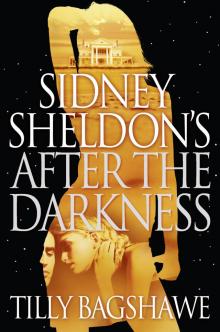 After the Darkness
After the Darkness The Best Laid Plans
The Best Laid Plans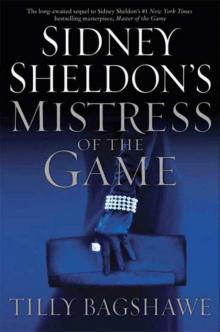 Mistress of the Game
Mistress of the Game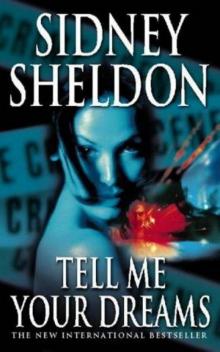 Tell Me Your Dreams
Tell Me Your Dreams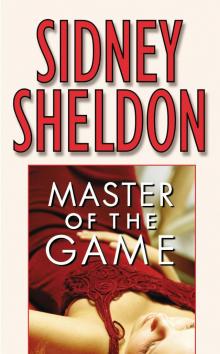 Master of the Game
Master of the Game Memories of Midnight
Memories of Midnight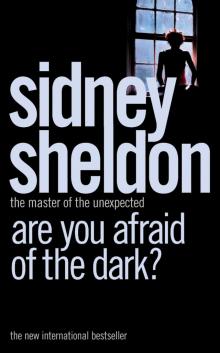 Are You Afraid of the Dark?
Are You Afraid of the Dark? Nothing Lasts Forever
Nothing Lasts Forever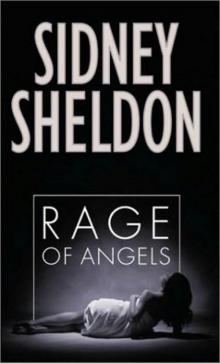 Rage of Angels
Rage of Angels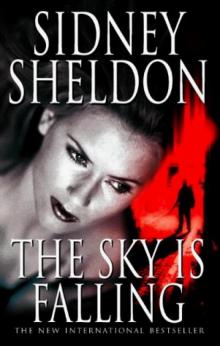 The Sky Is Falling
The Sky Is Falling The Sands of Time
The Sands of Time Morning, Noon and Night
Morning, Noon and Night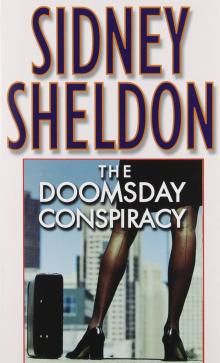 The Doomsday Conspiracy
The Doomsday Conspiracy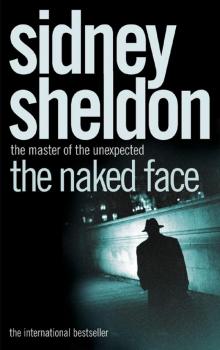 The Naked Face
The Naked Face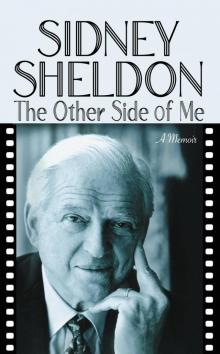 The Other Side of Me
The Other Side of Me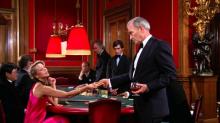 Bloodline
Bloodline The Stars Shine Down
The Stars Shine Down The Other Side of Midnight
The Other Side of Midnight A Stranger in the Mirror
A Stranger in the Mirror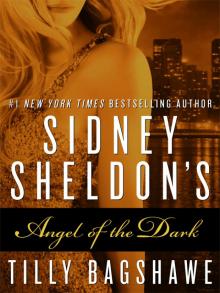 Sidney Sheldon's Angel of the Dark
Sidney Sheldon's Angel of the Dark Sidney Sheldon's the Tides of Memory
Sidney Sheldon's the Tides of Memory The Phoenix
The Phoenix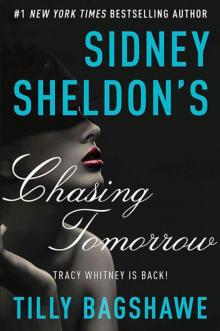 Sidney Sheldon's Chasing Tomorrow (Tracy Whitney)
Sidney Sheldon's Chasing Tomorrow (Tracy Whitney)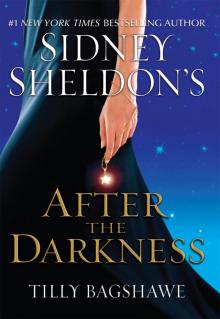 Sidney Sheldon's After the Darkness
Sidney Sheldon's After the Darkness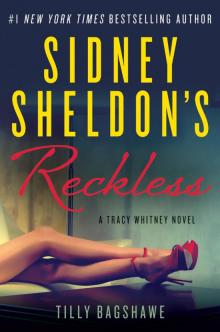 Sidney Sheldon's Reckless
Sidney Sheldon's Reckless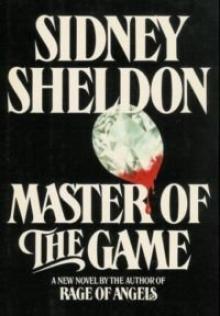 Master of the Game motg-1
Master of the Game motg-1 Sidney Sheldon's the Silent Widow
Sidney Sheldon's the Silent Widow Morning, Noon & Night
Morning, Noon & Night